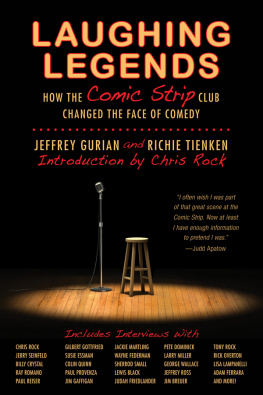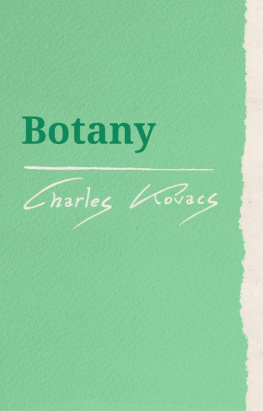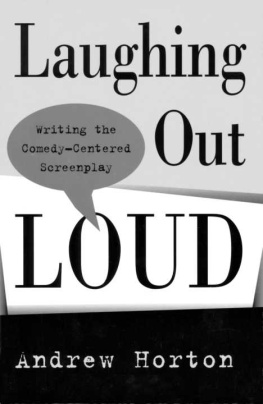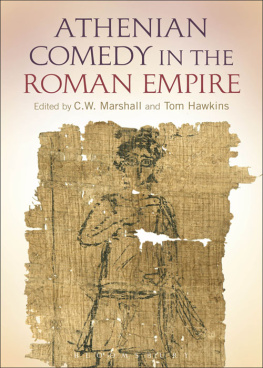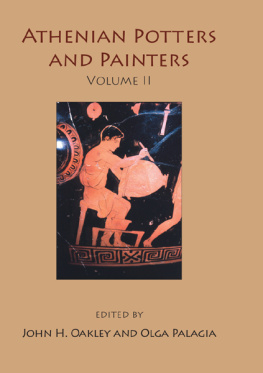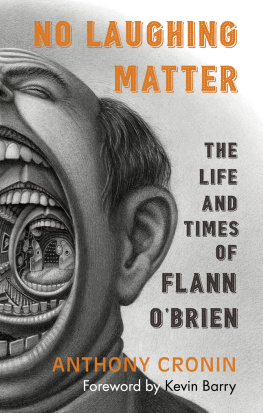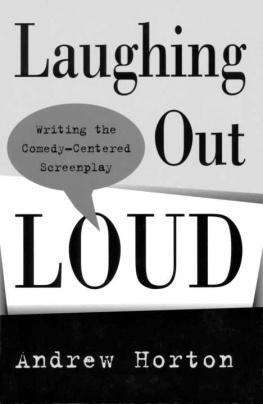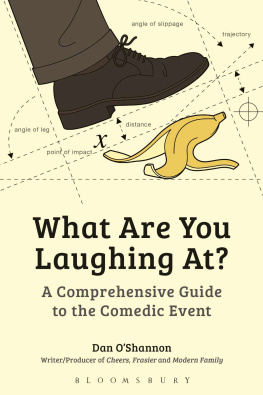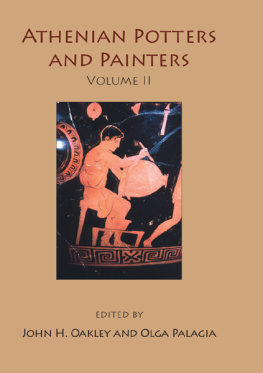Kovacs George - No Laughing Matter: Studies in Athenian Comedy
Here you can read online Kovacs George - No Laughing Matter: Studies in Athenian Comedy full text of the book (entire story) in english for free. Download pdf and epub, get meaning, cover and reviews about this ebook. City: Greece;Athens;Greek literature, year: 2013;2012, publisher: Bloomsbury Publishing Plc;Bloomsbury Academic, genre: Detective and thriller. Description of the work, (preface) as well as reviews are available. Best literature library LitArk.com created for fans of good reading and offers a wide selection of genres:
Romance novel
Science fiction
Adventure
Detective
Science
History
Home and family
Prose
Art
Politics
Computer
Non-fiction
Religion
Business
Children
Humor
Choose a favorite category and find really read worthwhile books. Enjoy immersion in the world of imagination, feel the emotions of the characters or learn something new for yourself, make an fascinating discovery.

- Book:No Laughing Matter: Studies in Athenian Comedy
- Author:
- Publisher:Bloomsbury Publishing Plc;Bloomsbury Academic
- Genre:
- Year:2013;2012
- City:Greece;Athens;Greek literature
- Rating:5 / 5
- Favourites:Add to favourites
- Your mark:
- 100
- 1
- 2
- 3
- 4
- 5
No Laughing Matter: Studies in Athenian Comedy: summary, description and annotation
We offer to read an annotation, description, summary or preface (depends on what the author of the book "No Laughing Matter: Studies in Athenian Comedy" wrote himself). If you haven't found the necessary information about the book — write in the comments, we will try to find it.
No Laughing Matter: Studies in Athenian Comedy — read online for free the complete book (whole text) full work
Below is the text of the book, divided by pages. System saving the place of the last page read, allows you to conveniently read the book "No Laughing Matter: Studies in Athenian Comedy" online for free, without having to search again every time where you left off. Put a bookmark, and you can go to the page where you finished reading at any time.
Font size:
Interval:
Bookmark:

C.W. Marshall and George Kovacs
Jeffrey Henderson
David Konstan
Eric Csapo
Keith Sidwell
Hallie Rebecca Marshall
S. Douglas Olson
Donald Sells
Arlene Allan
Alan H. Sommerstein
Judith Fletcher
Robert Tordoff
Elizabeth Scharffenberger
Ralph M. Rosen
C.W. Marshall
On Cratinus fr. 342 and Curmudgeons
There has never been a better time to read Athenian comedy. The revolutionary advances in the tools available mean that the study of early comedy is at the beginning of a new era. New editions of the Greek texts of Aristophanes by Sommerstein 1980-2002, Henderson 1998-2007, and Wilson 2007 provide the most accessible and clear scripts since the invention of the codex. At the same time, the plays of Aristophanes contemporaries have also been richly studied: Storey 2003, Olson 2007, and Bakola 2010 provide important and accessible discussions in English of Eupolis, Cratinus, and other fragmentary poets, with commentaries on fragmentary comic poets from fifth- and fourth-century Athens available in Hunter 1985 (Eubulus), Arnott 1996 (Alexis), Belladrini et al. 1998 (Ameipsias, Diodorus, Kallias, Metagenes), Konstantakos 2000 (Antiphanes), Millis 2001 (Anaxandrides), Papachrystomou 2008 (Amphis, Aristophon, Dionysios, Mnesimachos, Philetairos, Theophilos), Orth 2009 (Strattis), and Miles 2009 (Strattis). Important collections on comedy include Harvey and Wilkins 2000 and Dobrov 2010. All the extant fragments have been assembled (Kassel-Austin 1983-2001 = PCG), and any fragment longer than a single word or two is available in English translation in Henderson 2007 (= Aristophanes vol. 5), Rusten et al. 2011, and Storey 2011.
The chapters commissioned for this volume cover a range of topics both in the work of Aristophanes and in the fragments of his rivals and successors. The first three papers consider the history of Athenian comedy before Aristophanes began competing. Aristophanes is our earliest extant comic poet, but it is clear that he was able to draw inspiration from several sophisticated traditions of political and social commentary. In , Eric Csapo goes further back to describe the original context of invective in fifth-century Athenian comedy.
The next six chapters consider the extant comedies of Aristophanes in the fifth century. In , Alan Sommerstein reconsiders several passages in the play in light of scholarship since his 1996 edition, and in doing so asks us to reconsider the plays relationship to the tragic playwright Sophocles.
The remaining papers look to comedy in the fourth century and beyond. In , C.W. Marshall suggests that a third-century AD mosaic portrait of the new comic playwright Menander is best understood as a reference to Cratinus Wine-flask (Pytin).
These studies collectively represent the range of comedy in democratic Athens, and continue to problematise the easy periodisation of comedy that reaches back to the Hellenistic period. While it is convenient to think of the tripartite separation of Old Comedy (Aristophanes and his contemporaries), New Comedy (Menander and his contemporaries), and Middle Comedy existing somewhere between the two, the papers collected here help to challenge any straightforward linear progression. Old Comedy, as we know it, has roots that extend earlier even than Cratinus. As Olson (2007: 22-6) has described, the interstitial period of Middle Comedy is notoriously difficult to pin down, and the studies included here show how it remained engaged with the genre rivalry with tragedy well into the second half of the fourth century. The shift from Old to New Comedy is not so abrupt as it was once thought to be, nor is the gulf between these genres so great: rather, we may situate New Comedy on one organic trajectory of literary development. Even in the early fifth century, comic poets were constantly venturing into and retreating from many new territories of generic expansion.
The papers that consider fourth-century comedy, including two plays by Aristophanes, show the continued concern with the relationship between poetic genres, and the prominence of tragedy that extended late into the fourth century. This helps to provide a direct line to Menanders use of Euripidean tragedy as an underlying text shaping his plots (for example, Auge lies behind Epitrepontes; see Porter 1999-2000). Similarly, the so-called mythological burlesques are not simply a feature of fourth-century Middle Comedy, but are present in the earliest extant comic playwrights. In itself, this is not a new observation, but the detailed examples presented here should encourage readers to avoid presuppositions about what to expect under umbrella terms such as Old or Middle Comedy. Both periods of comedy exhibit multiple, conflicting themes that weave together to produce a tapestry as rich and diverse as the polis itself (see also Nesselrath 1990, Dobrov 1995, Arnott 2010).
The typical hero of the earliest examples of Athenian comedy is an old curmudgeon who walks with a stick we find him in Dicaeopolis (in Acharnians), Trygaeus (in Peace), Philocleon (in Wasps), Pyronides (in Eupolis Demes), and even Cratinus himself (in Wine-flask). He is attested in terracottas and vase painting. He perseveres into New Comedy and the senex durus of Plautus and beyond. In his many incarnations, he is a remarkable character, able to win over audiences with a charm that bubbles below the surface of the scowling mask he wears. His cantankerous nature conceals, thinly, a true passion for the welfare of his community.
Ian Storey, too, is a hero of Old Comedy, whose distinguished career at Trent University in Peterborough, Ontario, this volume is meant to commemorate. Ian has been at the forefront of the study of comic fragments, culminating in his studies of Eupolis and his Loeb edition of the fragments of Old Comedy (2003, 2011). His bibliographies on Old Comedy (1987, 1992, 2000, 2006) are important starting points for researchers in the field, valuable to scholars of all levels of experience for their careful insights. These works constitute a legacy that will inform students and scholars for decades to come.
This volume does not represent all of Ians research interests no volume could. Though his major works have been in Old Comedy, with more than twenty articles in addition to those items just mentioned, he has also published sensitive studies of Greek tragedy (1989, 2008a, 2009), and on the reception of Apuleius in C.S. Lewis Till We Have Faces (1998, 2005, 2007, 2008b). Ultimately, however, it is among the small, precise details of Old Comedy that he is best recognised: his treatment of fragments, his concern for dramatic chronology, and his interest in kmidoumenoi the real individuals named in jokes in Old Comedy, which extends back to his Toronto PhD under the supervision of R.M.H. Shepherd (1977).
Ians own commitment to teaching and student supervision, imperfectly hidden behind his curmudgeonly mask, is another area where the current volume must fall short. Ian has always been mindful of the needs of students demonstrated in Storey, Allan, and Boyne (2002) and especially in Storey and Allan (2005), both written with former students. His habit of listening attentively to the ideas of students of any student, even the lowly first-years reading their first samples of Greek literature and then giving serious consideration, leaves students feeling like colleagues. Such treatment has often proven prophetic. Many of his students have gone on to academic careers, and several appear in this volume, alongside other Canadian scholars that he has encouraged (but whom he did not formally teach) and senior scholars in the study of the origins of comedy.
Next pageFont size:
Interval:
Bookmark:
Similar books «No Laughing Matter: Studies in Athenian Comedy»
Look at similar books to No Laughing Matter: Studies in Athenian Comedy. We have selected literature similar in name and meaning in the hope of providing readers with more options to find new, interesting, not yet read works.
Discussion, reviews of the book No Laughing Matter: Studies in Athenian Comedy and just readers' own opinions. Leave your comments, write what you think about the work, its meaning or the main characters. Specify what exactly you liked and what you didn't like, and why you think so.

